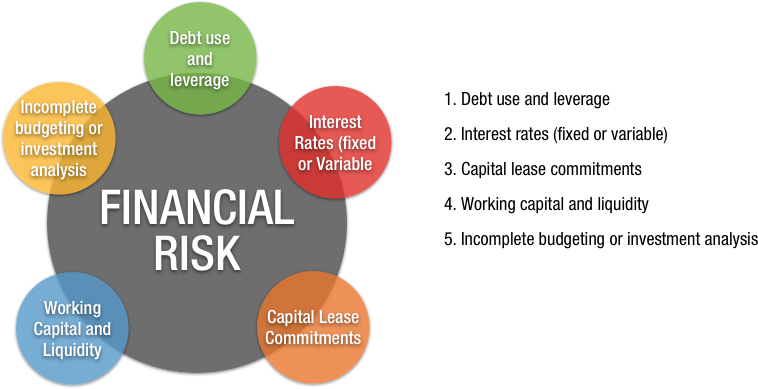Small businesses often rely on loans and lines of credit to finance their operations and grow their enterprises.
Risks To Consider
While borrowing can be a necessary and beneficial way to access the capital needed to succeed, it also carries certain risks that business owners should be aware of and carefully consider before making the decision to take on debt.
- Cash Flow / Financial Strain Making Payments
- Does Benefit Of Funding Outweigh The Cost Of Funding
- Accepting Personal Guarantees / Pledging Of Collateral
- Potential Loss Of Business Flexibility
One of the primary risks of borrowing for a small business is the potential for financial strain. Repaying a loan or line of credit typically requires regular payments, which can be difficult for a small business to manage if its revenue is unstable or insufficient. If a business is unable to make its payments on time, it may face late fees, damage to its credit score, and even legal action.
Basically examine the terms of the repayment to verify that cash outlfow you must make is realistic and achievable.
There is a cost of getting a business loan or a line of credit. When considering obtaining funding, is the cost of the funding less than the benefit you will get with the funding? If it is then it makes sense to get the funding. If not, then a loan or line of credit probably is not the best option for you.
For example, if it costs $5,000 to borrow $100,000 (the interest charged on the loan) will you get more than $5,000 in benefit in using that loan?
Another risk to consider is the possibility of losing personal assets. Many small business owners use their personal assets, such as their homes or savings, as collateral when taking out a loan or line of credit. If the business is unable to repay the debt, the lender may seize these assets in order to recoup their losses.
The funding at David Allen Capital (DAC) does not require personal guarantees or collateral. The funding is based on your business gross revenues (not net revenues) and you don't risk your assets to collateralize your loan / line of credit.
Additionally, taking on debt can also restrict a small business's flexibility and ability to respond to changing market conditions. The added financial obligation of regular loan or line of credit payments can limit a business's ability to invest in new opportunities or pivot its strategy in response to market shifts.


